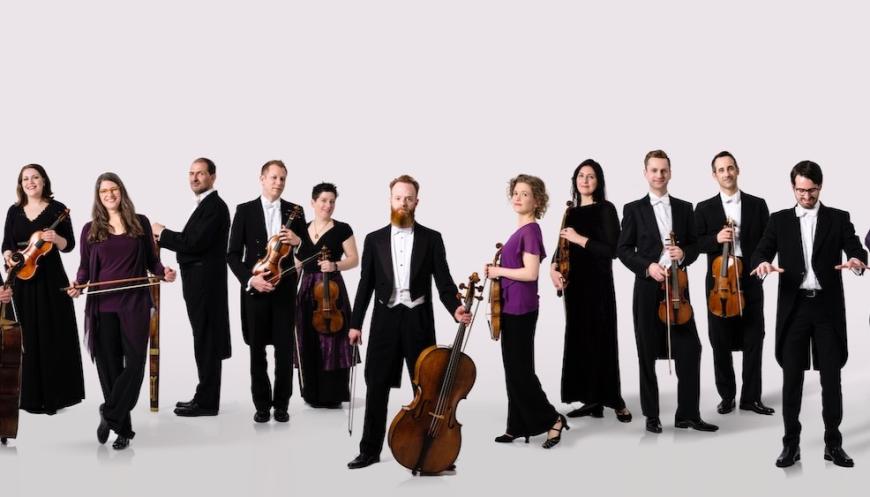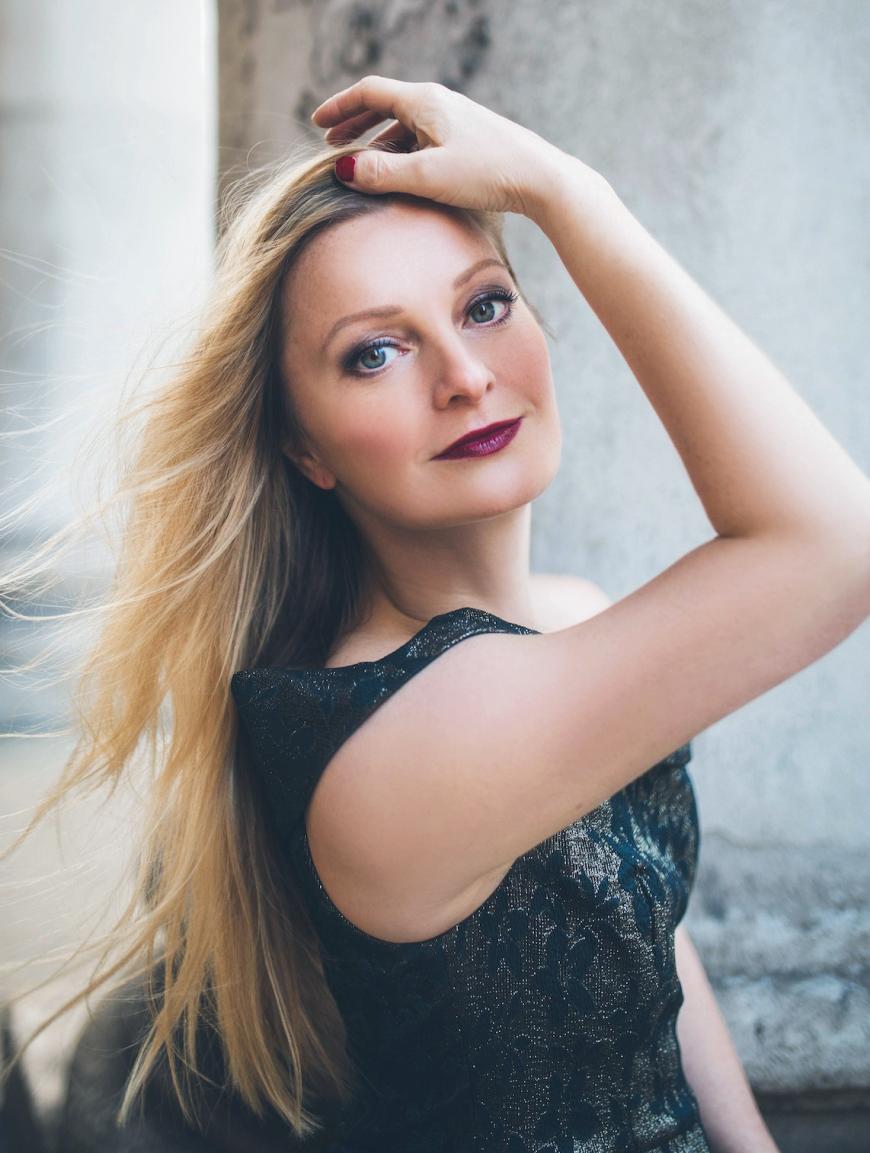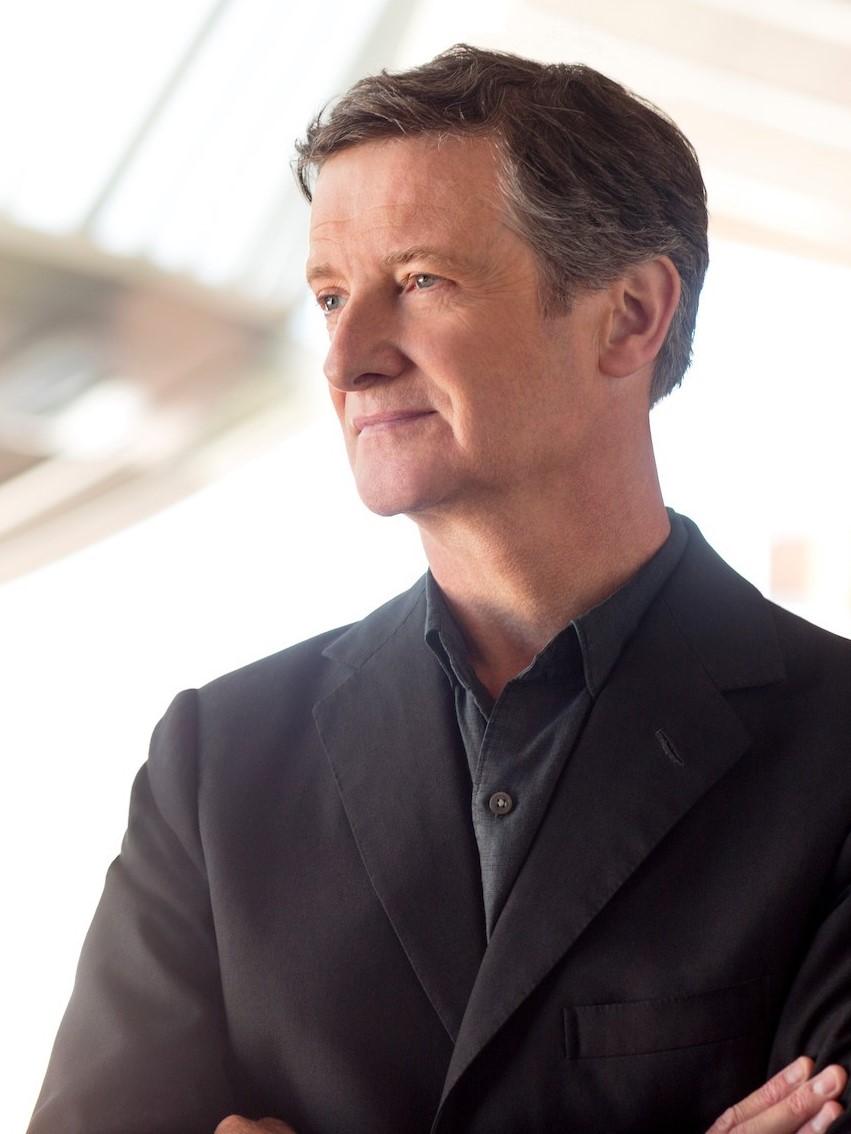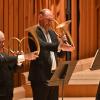
Baroque operas are famously rife with revenge and betrayal — loveless marriages heating up with lust and cruelty, kingdoms spiraling into doom loops of ambition and greed. The norm is Game of Thrones meets Who’s Afraid of Virginia Woolf?
But then there’s Handel’s Rodelinda (1725), which played on Sunday at Cal Performances in a concert version by Harry Bicket and The English Concert. (The performance travels to Los Angeles Opera on Nov. 21). In some ways, the opera fits the Baroque protocol. There’s the threat of murder lurking in every dark corner and plenty of political scheming amid a dysfunctional family that is happy to barter sexual favors for power. At first, in fact, you are sure it’s going to be as dark as King Lear, with which Rodelinda shares the premise of a divided kingdom and the potential for multiple catastrophes.
But somewhere along the line, Handel, collaborating closely with his librettist Nicola Haym, turns the story on its head. By the middle of Act 2, you can see that it’s less Lear than The Marriage of Figaro — a bittersweet domestic tale that’s going to be all right in the end. Sure, the really bad guy gets killed, but everybody else ultimately comes around. (Maybe they have been distracted from evil by the beauty of Handel’s music?)

Mostly, the change is due to the title character, magnificently sung on Sunday by soprano Lucy Crowe. Rodelinda, trapped in the palace of the usurper Grimoaldo, believes her husband Bertarido is dead. In the first two arias of the opera, we see her grief (“Ho perduto il caro sposo” — I have lost my dear husband) and then her indignation as she fiercely tells Grimoaldo where he can take his love (“L’empio rigor del fato” — The cruel blows of fate). Crowe added telling facial expressions and body language to the lightly staged performance. It’s to Rodelinda that Handel gave some of his greatest music, and Crowe did it more than justice, her somber tones of sorrow alternating with passages of splendidly energetic resolve.
Bertarido, Rodelinda’s supposedly dead husband, is alive but in hiding. He is the real king but seems to care little about regal power or courtly life; he’s a man who needs others to prod him to action — principally, of course, his wife. Countertenor Iestyn Davies went right to the core of the role in his first aria (“Dove sei, amato bene?” — Where are you, beloved?), showing Bertarido alone and in despair at his utter isolation. I’ll not soon forget Davies’s long-held first note, so exposed and fraught with the piercing sorrow of his character’s enforced absence from Rodelinda.
By the end of the opera, Handel gives his rather passive hero some of his wife’s potent indignation. Bertarido finally confronts Grimoaldo with the spectacular “Vivi, tiranno” (You are alive, tyrant). He almost spits at his enemy with his fierce words — “Svenami, ingrato, sfoga il furor” (Kill me, ingrate, unleash your rage).
By the middle of Act 2, Rodelinda has learned that her husband is alive, and she sings the gorgeous aria “Ritorna, o caro e dolce mio tesoro” (Come back, my dearest and sweetest treasure). And Bertarido — who has been led to think his wife has been unfaithful to him — realizes she loves him still.
Their reunion is short-lived, as Grimoaldo catches them together and throws Bertarido into prison. But in a blessed moment, the couple sings the only duet in the opera, “Io t’abbraccio” (I embrace you). The music is sublime and theatrically brilliant, ending Act 2 with a complex mix of happiness and great pain. Handel must have had in the back of his mind Claudio Monteverdi’s equally conflicted duet “Pur ti miro” (I gaze at you), which ends The Coronation of Poppea.
It turns out that there is more to Grimoaldo than villainy. While committing evil deeds, he does not seem, finally, to believe in evil, and his arias are filled with moral ambivalence. Tenor Eric Ferring sang the role with compelling dignity, particularly in a pair of Act 3 arias that lay bare the mixed emotions that rack this character and the exhaustion that comes of them.
Adding to the general murkiness of motive and morals, Bertarido’s sister Eduige flips from being Grimoaldo’s fiancee to vowing revenge on him after he dumps her, though she ends up betrothed to him in the opera’s reconciliation finale. (She helps save her brother as well.) Mezzo-soprano Christine Rice caught Eduige’s flamboyance with a pert sense of theater and some chilling vocal fireworks, especially in the vengeance plotting of “Lo farò” (I will do it).

Countertenor Aryeh Nussbaum Cohen embodied the trustworthy counselor Unolfo with earnest dignity, constantly guiding Bertarido in the right direction. Despite a rough start in his first number, Cohen was especially effective in the aria that opens Act 3, “Un zeffiro spirò che serenò quest’alma” (A breeze has blown to ease this heart), a sign that things will turn out all right in the end.
But things don’t go well for the real villain, Garibaldo, a Machiavellian counselor for whom morality is absurd and love a mere tool to gain power. Dramatically sung (with piratic rolled r’s) by bass-baritone Brandon Cedel, Garibaldo is predictably excluded from the happy ending after Bertarido does him in with a handy little knife (the only prop in the production, here used to especially welcome effect).
Handel’s genius shone throughout in The English Concert’s magnificent orchestra, which played as if inhabiting the spirit of Handel himself. Bicket, leading from the keyboard, always caught the right tempo. The violins and oboes swirled as fast and furious as the characters’ emotions, the flute and recorders soothed us when things were getting out of hand, and the extraordinary bass voices — bassoon, cellos, double bass, theorbo, and two harpsichords — drove the music and the action with unflagging energy and precision.
Bravo to Cal Performances for bringing The English Concert to Berkeley yet again. In 2023 alone, we have had two great Handel works (the oratorio Solomon played in March). I’m sure I am not the only one looking forward to more Handel and more of The English Concert.



